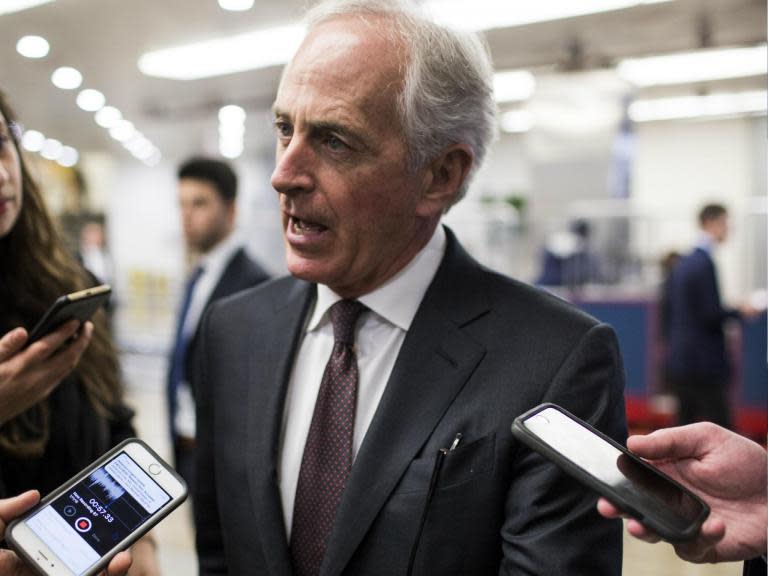Khashoggi murder: Senate defies Trump and votes to hold Saudi crown prince responsible for killing
The Senate has passed a resolution saying Saudi Arabian Crown Prince Mohammed bin Salman is responsible for the murder of journalist Jamal Khashoggi.
Defying Donald Trump’s desire to maintain close relations with Saudi Arabia including lucrative weapons deals, Senate Foreign Relations Committee chairman Bob Corker proposed the legislation, which has been backed by at least 10 of his fellow Republicans.
The CIA is reported to have assessed with “high confidence” that Crown Prince Mohammed was involved in the order to kill Mr Khashoggi, partly based on the judgement that as the country’s de facto ruler he would have had to have known. Saudi authorities have blamed a “rogue” team of operatives for the killing and have repeatedly denied any involvement by the crown prince.
Mr Trump and a number of administration officials have sought to play down the CIA assessment, with Secretary of State Mike Pompeo saying this week that it has been reported “inaccurately”.
The joint resolution calls for the Saudi government to ensure “appropriate accountability” for all those responsible for Mr Khashoggi’s death, calls on Riyadh to release Saudi women’s rights activists and encourages the kingdom to increase efforts to enact economic and social reforms.
However, it is unclear if the House of Representatives will consider voting on the measure.
The measure also warns that the kingdom’s purchases of military equipment from, and cooperation with, the governments of Russia and China challenge the integrity of the US-Saudi military relationship.
The resolution also says there is no statutory authorisation for US involvement in hostilities in the Yemen civil war and supports the end of air-to-air refuelling of Saudi-led coalition aircraft operating fighting Houthi rebels.
The Senate has also passed a separate resolution on Thursday afternoon that calls for en end to all US involvement with the Saudi-led coalition involved in the Yemen war.
Although the measure would have to clear additional hurdles to become law, the 56-41 vote was the first time either chamber of Congress had backed a move to withdraw US forces from a foreign military engagement under the War Powers Act.
That law, passed during the Vietnam War, limits the president’s ability to commit US forces to potential hostilities without congressional approval.
Mr Khashoggi, a US resident and columnist for the Washington Post, was killed at the beginning of October.
The killing sparked international outrage, with nations like France, the UK and Germany calling for a full investigation. The murder was a major topic at the recent G20 summit in Argentina, and Crown Prince Mohammed has seen his international standing take a hit amid the controversy.
In the days following the murder, Riyadh offered numerous contradictory explanations for Mr Khashoggi’s death. Officials later said the journalist had been killed and his body dismembered when negotiations by the team of operatives to persuade him to return to Saudi Arabia failed.
Reuters contributed to this report

 Yahoo News
Yahoo News 

